
Sorvagur: A Hidden Gem in the Faroe Islands
Sorvagur, a charming village in the Faroe Islands, is a destination that offers a serene escape from the hustle and bustle of modern life. Nestled on the island of Vagar, Sorvagur is the gateway to some of the most breathtaking natural landscapes in the archipelago. The village is known for its picturesque harbor, where colorful boats bob gently on the water, and the surrounding green hills that seem to stretch endlessly into the horizon. Exploring Sorvagur, visitors can immerse themselves in the local culture and history. The village is home to the Faroe Islands' only airport, making it a convenient starting point for your adventures. From here, you can embark on hikes to the stunning Sorvagsvatn lake, which appears to float above the ocean due to a unique optical illusion. The nearby Bøsdalafossur waterfall, where the lake flows into the Atlantic Ocean, is a must-see natural wonder. Sorvagur's local charm is evident in its cozy cafes and friendly residents. Take a stroll through the village to discover traditional Faroese architecture, with turf-roofed houses that blend seamlessly into the landscape. The village also offers easy access to Mykines, an island known for its puffin colonies and dramatic cliffs. Whether you're an avid hiker, a birdwatcher, or simply someone who appreciates unspoiled natural beauty, Sorvagur is a destination that will leave you enchanted.
Local tips in Sorvagur
- Pack layers and waterproof clothing, as the weather can be unpredictable.
- Rent a car at the airport for the best way to explore the island at your own pace.
- Visit during the summer months for the best chance of clear skies and longer daylight hours.
- Take a guided tour to Mykines to see the puffins and enjoy the stunning views.
- Try local Faroese dishes like fermented lamb and fresh seafood at village cafes.
Sorvagur: A Hidden Gem in the Faroe Islands
Sorvagur, a charming village in the Faroe Islands, is a destination that offers a serene escape from the hustle and bustle of modern life. Nestled on the island of Vagar, Sorvagur is the gateway to some of the most breathtaking natural landscapes in the archipelago. The village is known for its picturesque harbor, where colorful boats bob gently on the water, and the surrounding green hills that seem to stretch endlessly into the horizon. Exploring Sorvagur, visitors can immerse themselves in the local culture and history. The village is home to the Faroe Islands' only airport, making it a convenient starting point for your adventures. From here, you can embark on hikes to the stunning Sorvagsvatn lake, which appears to float above the ocean due to a unique optical illusion. The nearby Bøsdalafossur waterfall, where the lake flows into the Atlantic Ocean, is a must-see natural wonder. Sorvagur's local charm is evident in its cozy cafes and friendly residents. Take a stroll through the village to discover traditional Faroese architecture, with turf-roofed houses that blend seamlessly into the landscape. The village also offers easy access to Mykines, an island known for its puffin colonies and dramatic cliffs. Whether you're an avid hiker, a birdwatcher, or simply someone who appreciates unspoiled natural beauty, Sorvagur is a destination that will leave you enchanted.
When is the best time to go to Sorvagur?
Iconic landmarks you can’t miss
Múlafossur Waterfall
Explore the breathtaking Múlafossur Waterfall in Gasadalur, Faroe Islands - a stunning natural wonder that enchants every visitor.
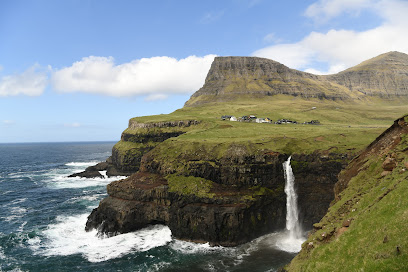
View on Mullafossur and Gasadalur village
Discover the breathtaking Mullafossur Waterfall and the charming Gasadalur Village, a must-see natural wonder in the Faroe Islands.
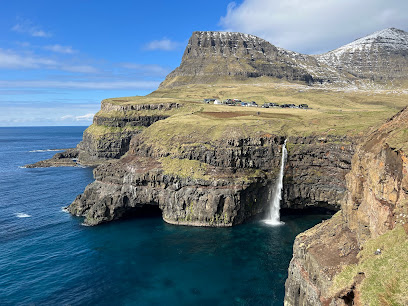
Trælanípa
Experience the breathtaking views and dramatic cliffs of Trælanípa, a natural wonder in the Faroe Islands that captivates every traveler.
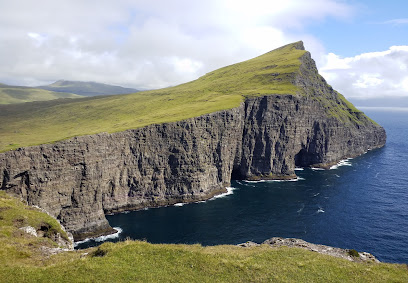
Dúvugarðar Museum & Café
Explore the Dúvugarðár Museum & Café in Saksun, where Faroese heritage meets delightful local flavors in a breathtaking setting.
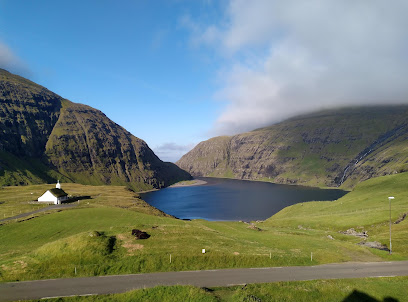
Bøsdalafossur Waterfall
Discover the stunning Bøsdalafossur Waterfall in the Faroe Islands, a breathtaking natural wonder surrounded by picturesque landscapes and rich culture.
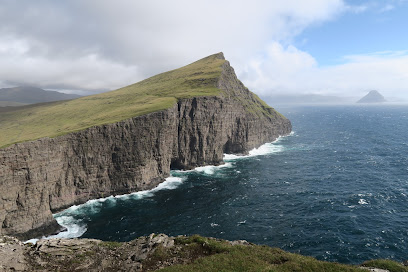
Slave Cliff (Lake Above the Ocean)
Discover the stunning views and natural beauty at Slave Cliff in the Faroe Islands, where hiking meets breathtaking landscapes.
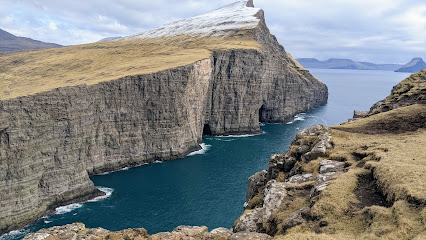
Café Zorva
Experience the flavors of the Faroe Islands at Café Zorva, where local cuisine meets stunning views in a cozy brasserie setting.
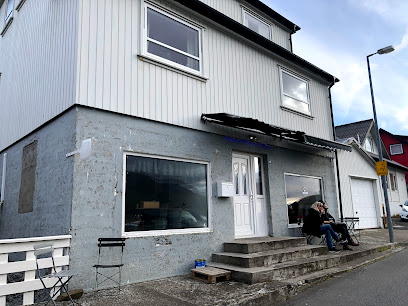
Hotel Vagar
Discover the enchanting beauty of the Faroe Islands from Hotel Vagar, your cozy retreat in Sørvágur, offering stunning views and local charm.
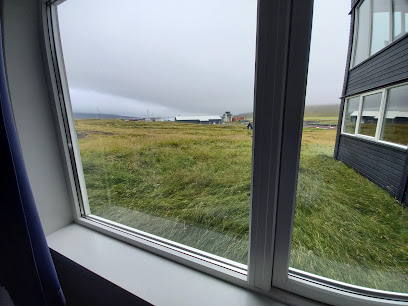
Witches Finger Trail
Discover the magical Witches Finger Trail in the Faroe Islands, where dramatic landscapes and enchanting legends await every hiker.
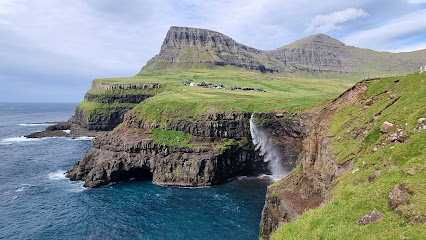
Sørvágsvatn
Experience the mesmerizing beauty of Sørvágsvatn, a stunning lake in the Faroe Islands, offering breathtaking views and serene landscapes for every traveler.
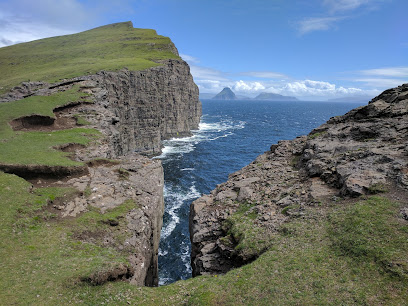
Bluegate.fo - Boat Tours
Explore the breathtaking waters of the Faroe Islands with Bluegate.fo Boat Tours, where adventure and natural beauty await every traveler.
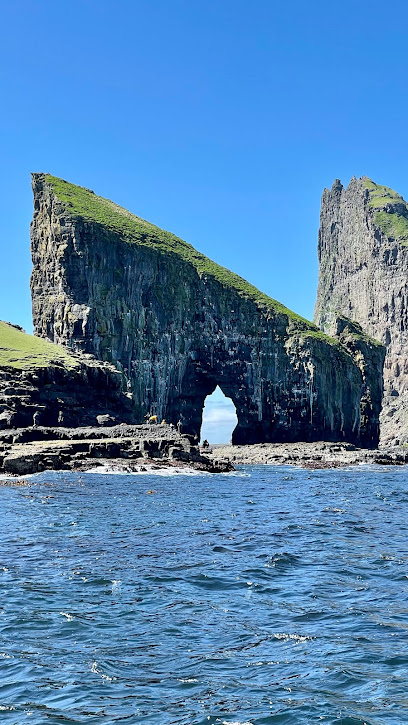
Risin og Kellingin viewpoint
Explore the stunning Risin og Kellingin Viewpoint in the Faroe Islands, where nature's beauty and folklore intertwine for an unforgettable adventure.
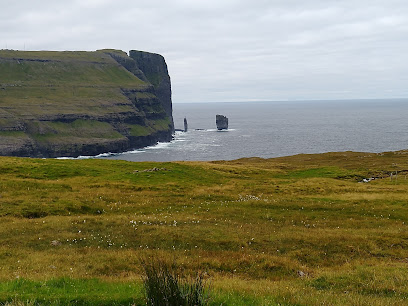
The Nix
Explore The Nix, an enchanting sculpture in the Faroe Islands that captures local folklore and artistry amid breathtaking natural landscapes.
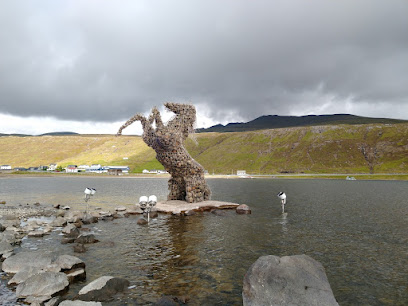
Veðrur
Discover Veðrur, a stunning sculpture in Tórshavn that embodies the artistic spirit of the Faroe Islands and offers a picturesque setting for your travels.
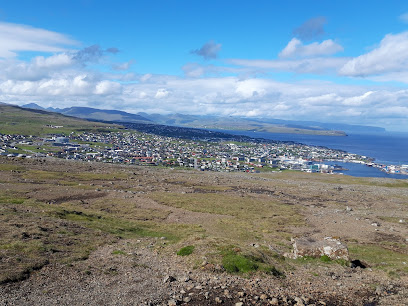
Port Sørvágur
Discover the breathtaking beauty of Port Sørvágur, a charming marina in the Faroe Islands, perfect for adventure and relaxation amidst stunning landscapes.
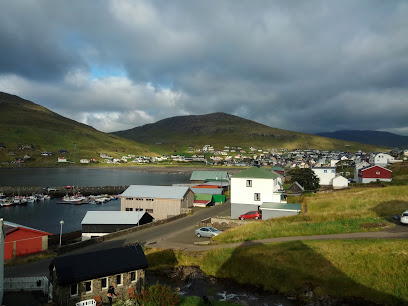
Unmissable attractions to see
Múlafossur Waterfall
Experience the iconic Múlafossur Waterfall in the Faroe Islands, where cascading waters meet dramatic cliffs in a breathtaking landscape.
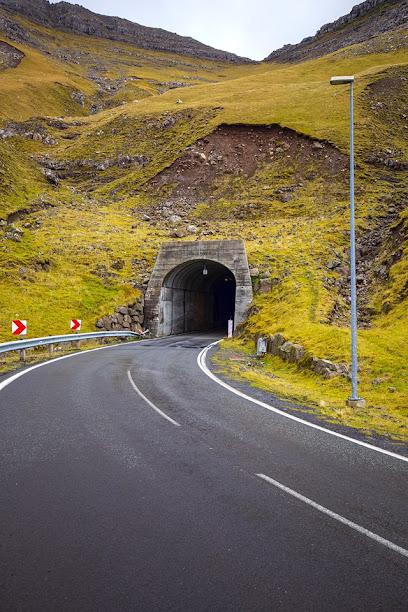
Gjógv Natural Harbour
Discover Gjógv: A charming Faroese village with a dramatic natural harbor, stunning scenery, and a tranquil escape.
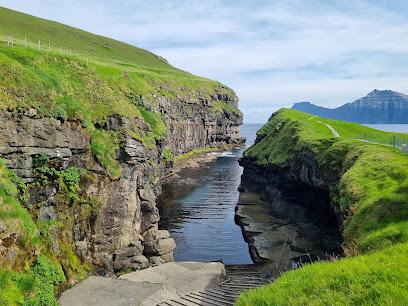
View on Mullafossur and Gasadalur village
Experience the iconic Múlafossur Waterfall and the charming village of Gásadalur, a must-see destination in the Faroe Islands.
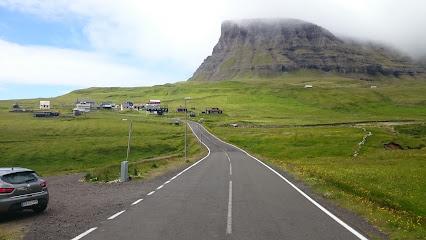
Tjørnuvik Beach
Experience the dramatic beauty of Tjørnuvík Beach in the Faroe Islands: black sands, towering cliffs, and legendary sea stacks await.
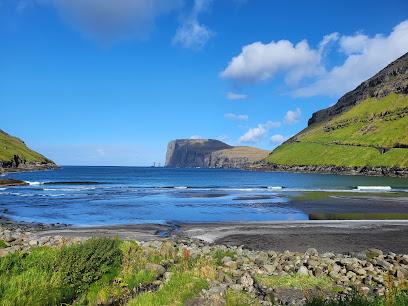
Risin og Kellingin viewpoint
Witness the legendary Giant and Witch sea stacks from this stunning Faroe Islands viewpoint. A must-see natural wonder!
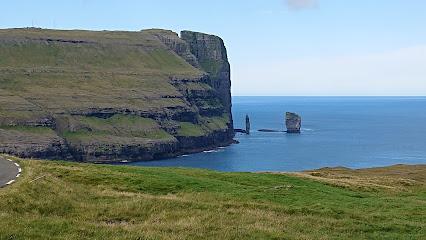
Skarðsáfossur
Discover Skarðsáfossur waterfall in the Faroe Islands: a hidden gem offering breathtaking views and tranquil natural beauty on Vágar Island.
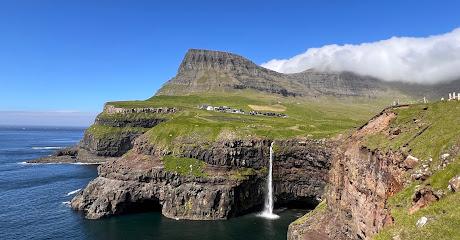
Sunset Viewpoint
Experience breathtaking sunsets and panoramic views from the cliffs of Gásadalur, a hidden gem in the Faroe Islands.
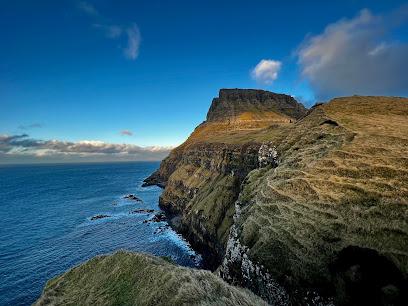
Village Museum Sørvágur
Step back in time at Sørvágur Village Museum and discover the captivating history and traditions of the Faroe Islands in a picturesque setting.
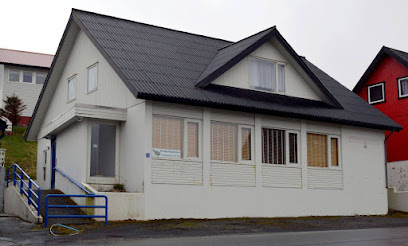
Gjógv
Discover Gjógv, a charming Faroese village with a stunning gorge harbor, rich history, and breathtaking natural beauty on Eysturoy Island.
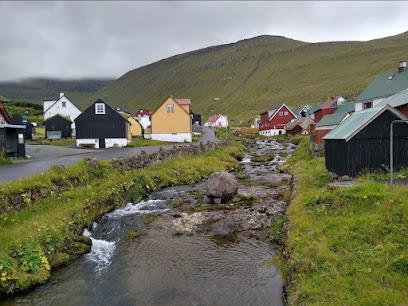
Tjørnuvík
Discover Tjørnuvík: A historic Faroese village with stunning views, a black sand beach, and Viking heritage in a tranquil setting.
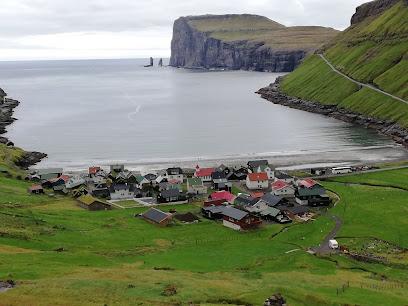
Vestmanna
Explore Vestmanna, Faroe Islands: Viking history, dramatic cliffs, and abundant birdlife await in this charming coastal village.
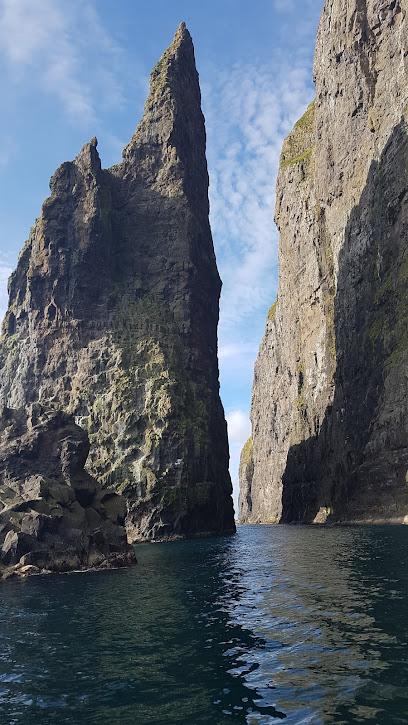
Gasadalur
Discover Gasadalur: Faroe Islands' hidden gem with dramatic waterfalls, stunning landscapes, and a unique cultural experience.
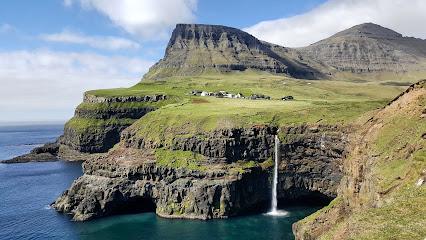
Essential places to dine
Katrina Christiansen
Discover authentic Scandinavian cuisine at Katrina Christiansen in Tórshavn - where local flavors meet culinary excellence.
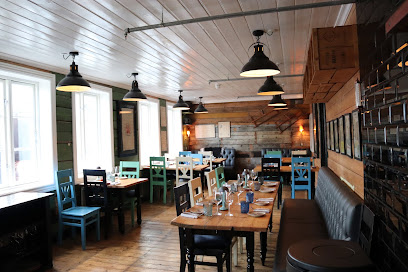
Angus Steakhouse
Discover Angus Steakhouse in Tórshavn: A Culinary Gem Serving Delicious Steaks and Fresh Seafood in the Heart of Faroe Islands.
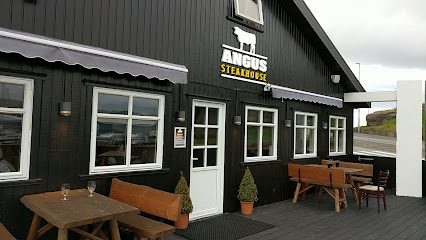
Áarstova
Discover Áarstova in Tórshavn for an authentic taste of Faroese cuisine amidst stunning landscapes.
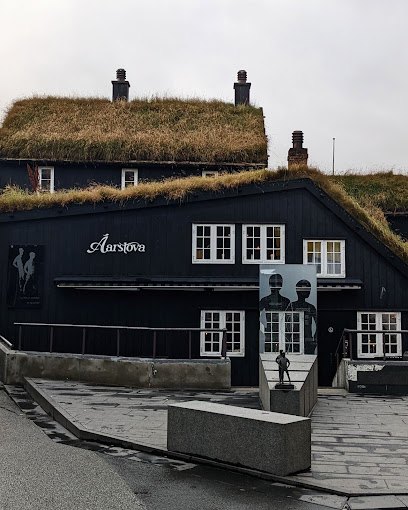
Barbara Fish House
Experience authentic Faroese seafood at Barbara Fish House in Tórshavn – where tradition meets taste.
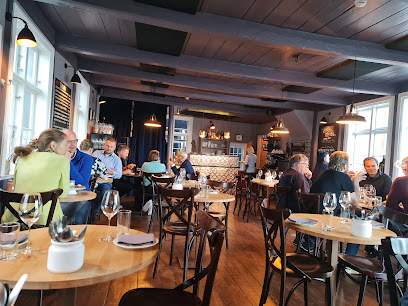
Toscana
Experience Toscana: A culinary journey through Italian flavors infused with local Faroese seafood and prime steaks in Tórshavn.
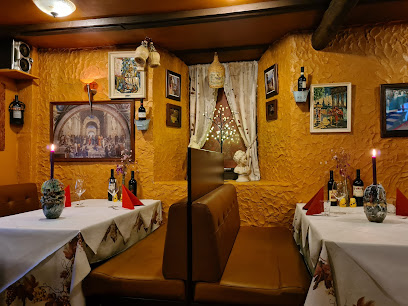
Café Zorva
Discover authentic Faroese cuisine at Café Zorva in Sørvágur – where local flavors meet stunning island views.
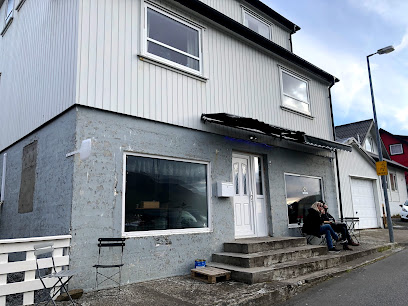
Kafé Kaspar
Discover the cozy charm of Kafé Kaspar in Tórshavn - where delicious bagels meet artisanal coffee in an inviting atmosphere.
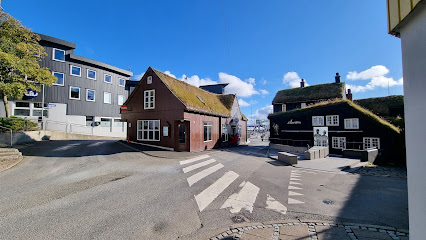
Fisk og Kips
Experience authentic Faroese flavors at Fisk og Kips - your go-to destination for delicious fish and chips in Tórshavn.
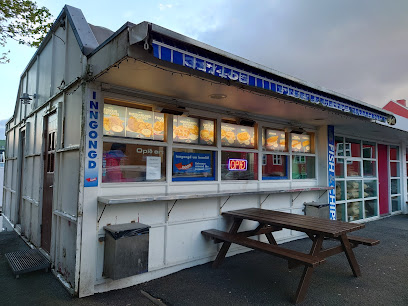
Kafe Umami
Experience the best of Faroese cuisine at Kafe Umami - where tradition meets innovation in Tórshavn.
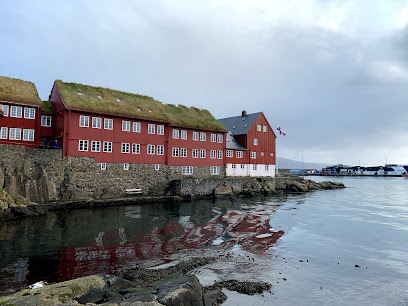
Bitin
Experience authentic Faroese cuisine at Bitin in Tórshavn - where local ingredients meet Scandinavian tradition.
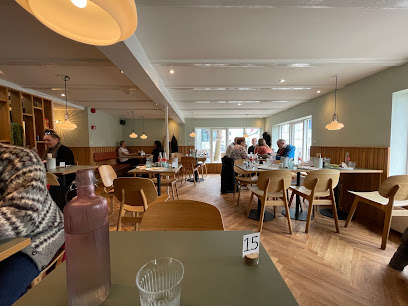
OY Brewing
Discover the essence of Faroese craft beer at OY Brewing, where tradition meets innovation in every sip.
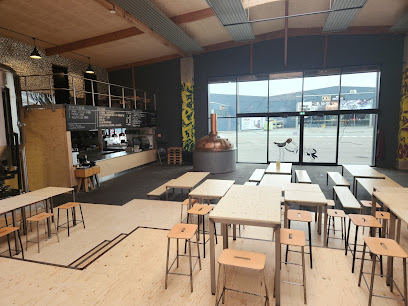
Suppugarðurin
Discover the essence of Japanese cuisine at Suppugarðurin – Tórshavn's premier ramen restaurant offering authentic flavors and a cozy atmosphere.
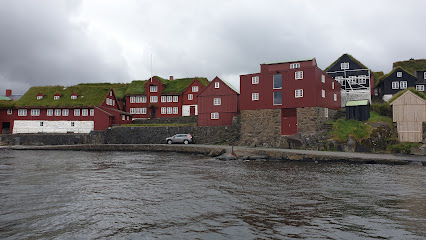
Muntra
Experience authentic Faroese cuisine at Muntra in Fuglafjørður—where local ingredients meet breathtaking views.
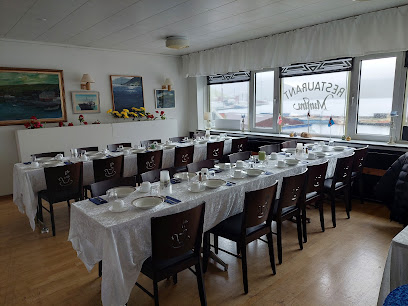
Seven
Discover authentic Chinese flavors at Seven in Tórshavn—an unforgettable culinary experience awaits you.
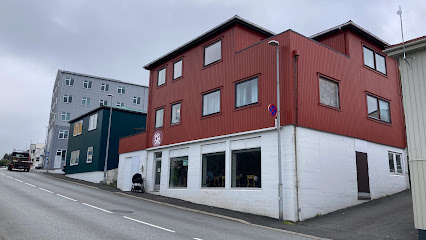
HAPS Burgerbar
Experience gourmet burgers with local flavors at HAPS Burgerbar in Tórshavn - a culinary delight in the heart of the Faroe Islands.
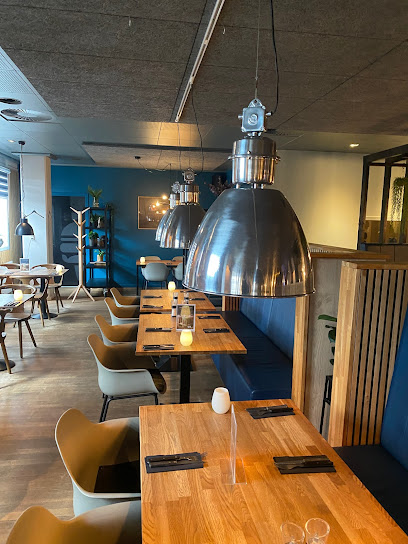
Markets, malls and hidden boutiques
Bónus
Discover local flavors and essentials at Bónus, Tórshavn’s vibrant supermarket, perfect for tourists seeking an authentic taste of the Faroe Islands.
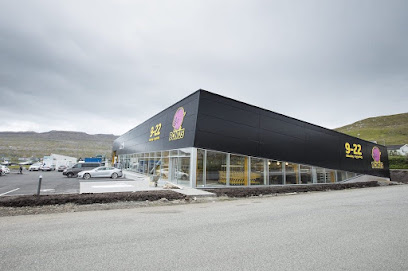
FK Super Market
Explore the authentic flavors and everyday life of Miðvágur at FK Super Market, your one-stop shop for local delicacies and daily essentials.
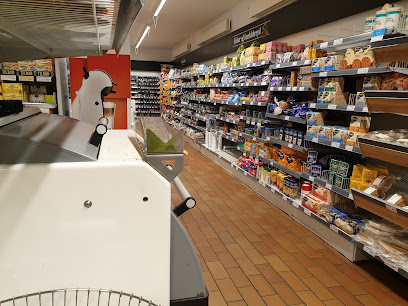
PE Sørvágur
Explore PE Sørvágur, the charming grocery store in Sørvágur, Faroe Islands, offering local products and a taste of Faroese culture.
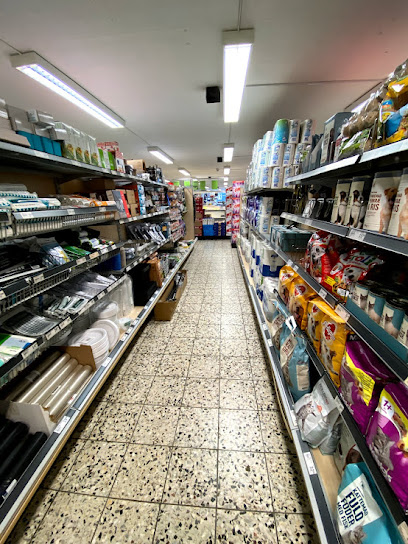
Á Landavegur
Experience the best of local and international groceries at Á Landavegur, the premier supermarket in Tórshavn, Faroe Islands.
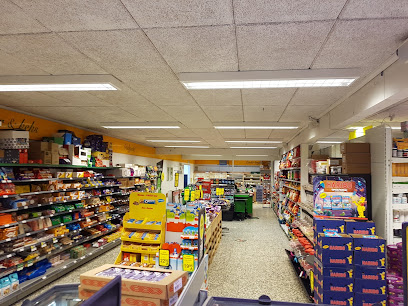
Effo Petrol Station
Effo Petrol Station in Sørvágur: Your essential stop for fuel, snacks, and local tips while exploring the stunning Faroe Islands.
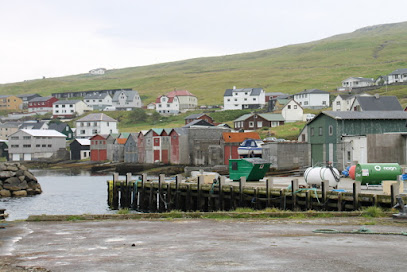
Á
Discover the essence of the Faroe Islands at Á grocery store, where local flavors meet a diverse selection of products.
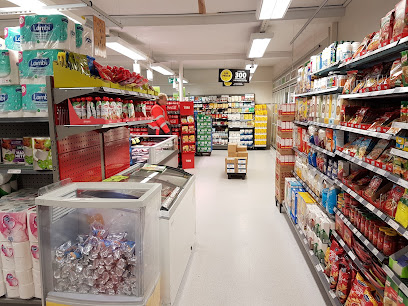
Á Handil
Discover the flavors of the Faroe Islands at Á Handil, Tórshavn's premier grocery store offering local delicacies and fresh ingredients.
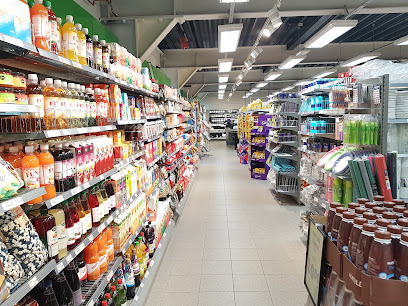
Rúsdrekkasøla Landsins - Miðvágur
Experience the rich flavors of the Faroe Islands with local beers and wines at Rúsdrekkasøla Landsins in Miðvágur.
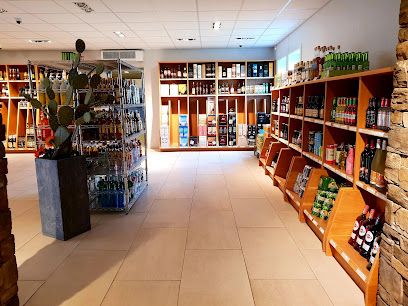
Á handil
Discover Á Handil, Tórshavn's premier grocery store, featuring local delicacies and a diverse selection of high-quality products.
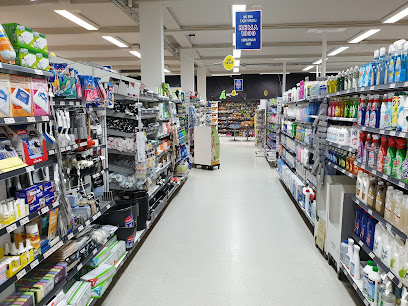
Inn við Grønlandsvegin
Explore the flavors of the Faroe Islands at Inn við Grønlandsvegin, your go-to grocery store in Tórshavn for fresh and local delicacies.
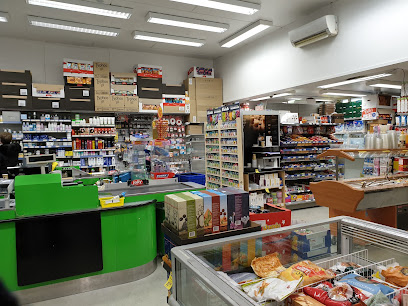
Á Sandoyggin
Explore the flavors of the Faroe Islands at Á Sandoyggin, a charming grocery store in Skopun offering local produce and authentic culinary delights.
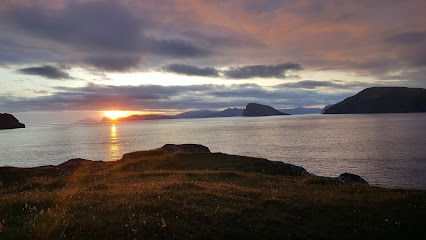
Torgið Shopping Center
Experience the vibrant culture and diverse shopping options at Torgið Shopping Center in Vágur, Faroe Islands, where local charm meets modern retail.
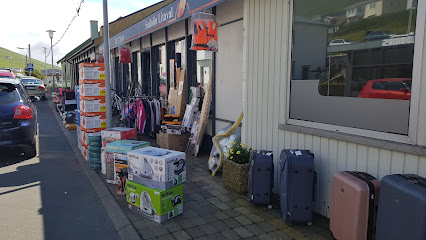
Ryggstein Sigarir
Discover the art of cigar smoking at Ryggstein Sigarir, Tórshavn's premier destination for cigar enthusiasts in the stunning Faroe Islands.
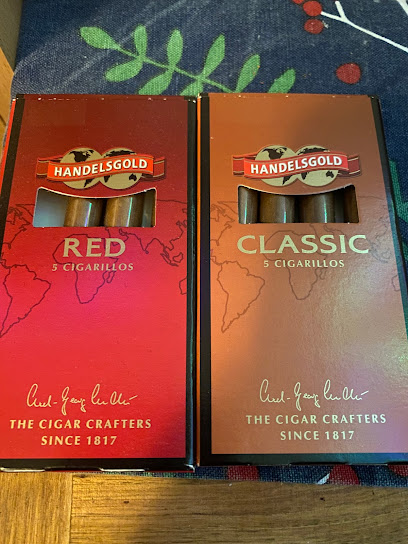
Ullvøruhúsið
Discover the charm of Faroese wool fashion at Ullvøruhúsið in Tórshavn, where quality craftsmanship meets traditional design.
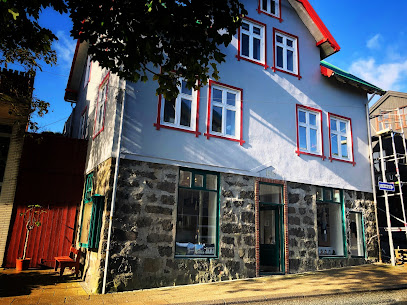
Á Shop
Experience the local charm of Á Shop in Vágur, your essential supermarket for groceries and Faroese delicacies in the stunning Faroe Islands.
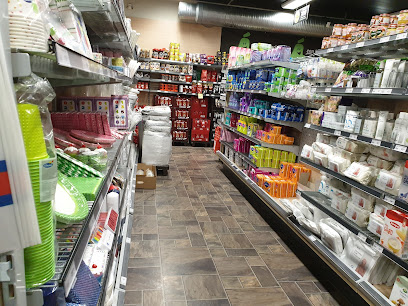
Essential bars & hidden hideouts
Irish Pub Torshavn
Experience the warmth of Irish hospitality at Irish Pub Torshavn, where hearty meals and lively entertainment await you in the beautiful Faroe Islands.
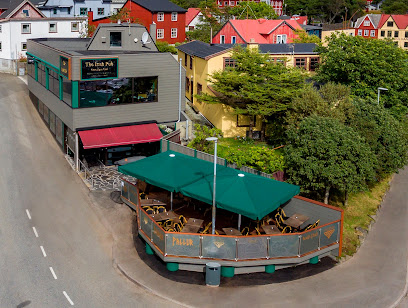
Sirkus Bar
Discover the vibrant atmosphere of Sirkus Bar in Tórshavn, a must-visit spot for nightlife lovers seeking unique cocktails and live entertainment.
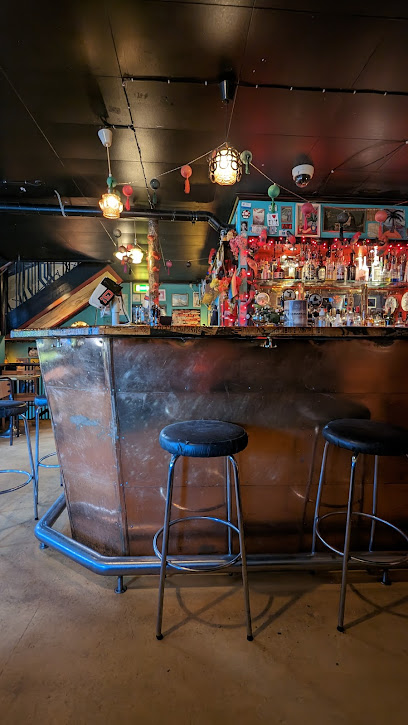
Mikkeller Tórshavn
Experience the vibrant craft beer scene at Mikkeller Tórshavn, a quirky bar in the heart of the Faroe Islands' capital, perfect for socializing and relaxation.
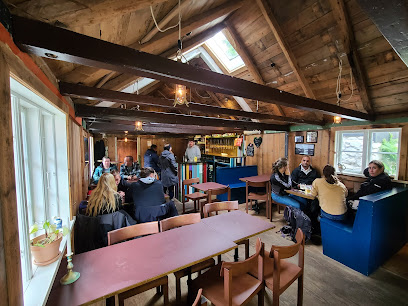
Café Zorva
Discover Café Zorva, a charming brasserie in Sørvágur, where local flavors meet stunning views of the Faroe Islands.
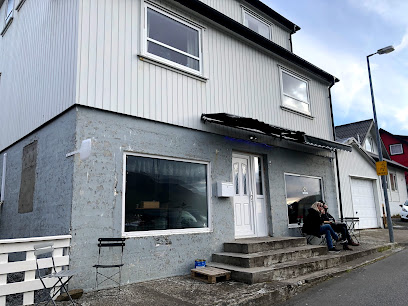
OY Brewing
Discover the vibrant flavors of Faroese craft beer and delicious bar food at OY Brewing, the heart of Tórshavn's brewpub scene.
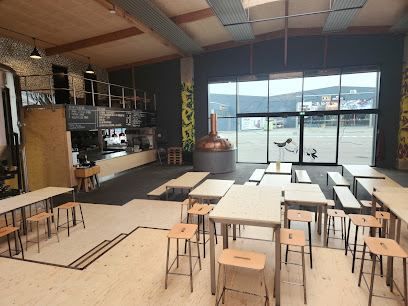
Smiðjan
Discover the authentic flavors of the Faroe Islands at Smiðjan, a beloved restaurant in Miðvágur offering local dishes in a cozy setting.
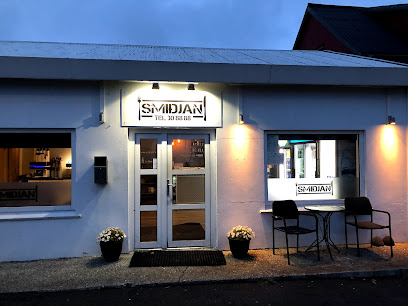
Resturant Cafe Pollastova
Discover the flavors of the Faroe Islands at Café Pollastova in Sørvágur – a must-visit restaurant for authentic local cuisine.
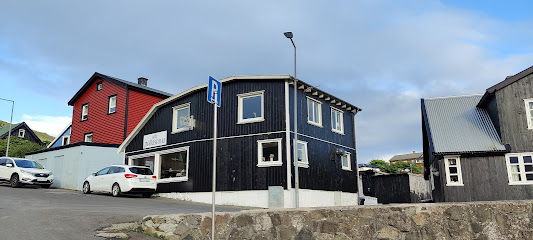
Roykstovan
Experience the vibrant nightlife of Klaksvík at Roykstovan, where locals and tourists unite over drinks in a cozy Faroese setting.
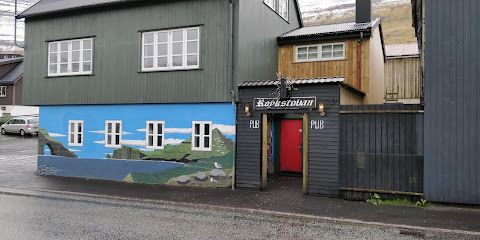
Glitnir
Experience the vibrant nightlife of Tórshavn at Glitnir, a lively bar offering local drinks and a friendly atmosphere.
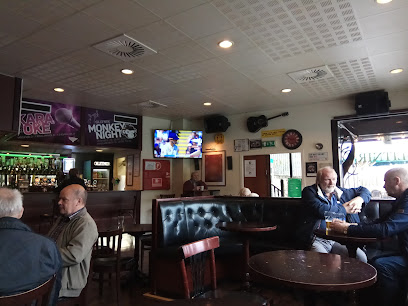
Blábar
Experience the vibrant nightlife of Tórshavn at Blábar, a cozy bar that celebrates jazz and blues in the heart of the Faroe Islands.
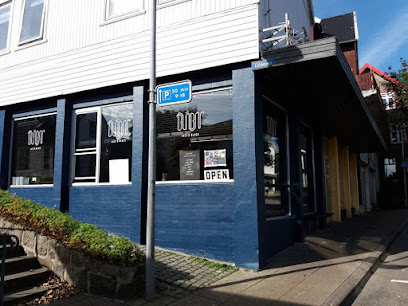
Guesthouse Hugo
Experience the serene beauty of the Faroe Islands at Guesthouse Hugo, your cozy bed and breakfast in Sørvágur.
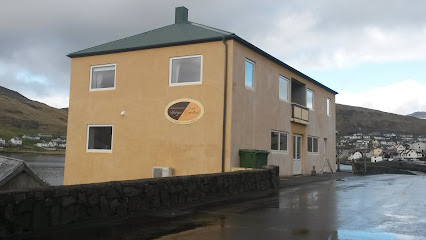
Tórshøll
Discover Tórshøll, a vibrant bar in Tórshavn offering local brews and crafted cocktails in a cozy atmosphere, perfect for unwinding after a day of exploration.
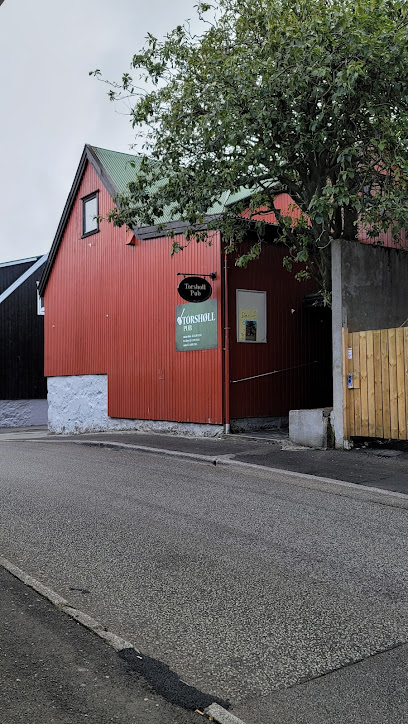
Maverick
Experience the vibrant nightlife of Klaksvík at Maverick, the bar renowned for its local beers and inviting atmosphere.
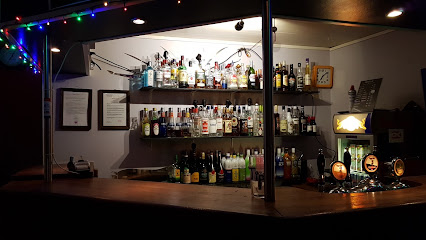
Landskrona Sports Bar
Discover the lively spirit of Landskrona Sports Bar in Tórshavn, where sports, drinks, and good company create the ultimate experience.
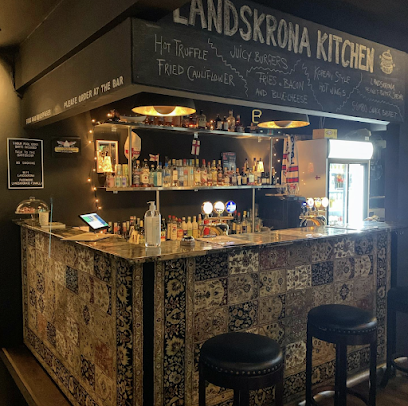
Local Phrases
-
- HelloHalló
[ha-loh] - GoodbyeFarvæl
[far-vail] - YesJa
[ya] - NoNei
[nay] - Please/You're welcomeVælkomin
[vail-koh-min] - Thank youTakk fyri
[tahk fyi] - Excuse me/SorryUndirskyld
[oon-deer-sheelt] - How are you?Hvussu gongur tú?
[khoos-soo go-nur too] - Fine. And you?Gott. Og tú?
[goht. oh too] - Do you speak English?Talar tú enskt?
[tah-lar too en-skt] - I don't understandEg skilji ikki
[ay shil-yee ihk-ki]
- HelloHalló
-
- I'd like to see the menu, pleaseEg vil síggja menuin, vænti
[ay vil see-jah men-oo-een, vayn-tee] - I don't eat meatEg eti ikki kjøt
[ay eh-tee ihk-ki kyut] - Cheers!Skál!
[skowl] - I would like to pay, pleaseEg vil gjalda, vænti
[ay vil yal-dah, vayn-tee]
- I'd like to see the menu, pleaseEg vil síggja menuin, vænti
-
- Help!Hjálp!
[hyowlp] - Go away!Far burtur!
[far boor-tur] - Call the Police!Ring í Politið!
[reeng ee poh-lee-teeth] - Call a doctor!Ring eftir lækninum!
[reeng ehf-teer layk-nee-num] - I'm lostEg er týstur
[ay air toos-tur] - I'm illEg er sjúkur
[ay air shoo-kur]
- Help!Hjálp!
-
- I'd like to buy...Eg vil keypa...
[ay vil kay-pah] - I'm just lookingEg bara gloyma
[ay bah-rah glow-mah] - How much is it?Hvat kostar tað?
[kvaht kohs-tar tah] - That's too expensiveTað er ov dyrt
[tahr air ov dihrt] - Can you lower the price?Kanstu lætta prísin?
[kahn-stoo lay-tah prees-een]
- I'd like to buy...Eg vil keypa...
-
- What time is it?Hvat er klokkan?
[kvaht air klohk-ahn] - It's one o'clockTað er eitt
[tah air ayt] - Half past (10)Hálvgjoðan (10)
[howlg-yoh-than (tayn)] - MorningMorgun
[mohr-goon] - AfternoonSíðdegis
[seeth-deh-gees] - EveningKvøld
[kvool] - YesterdayÍ gjár
[ee gya-r] - TodayÍ dag
[ee dah] - TomorrowÍ morgin
[ee mohr-geen] - 1Ein
[ayn] - 2Tvær
[tvy-ar] - 3Tríggjar
[tree-gyahr] - 4Fýra
[fy-ra] - 5Fimm
[feem] - 6Seks
[seks] - 7Sjey
[shay] - 8Átta
[awt-ta] - 9Ni
[nee] - 10Tíggju
[tee-gyoo]
- What time is it?Hvat er klokkan?
-
- Where's a/the...?Hvar er ein/tað...?
[kvar air ayn/tah...?] - What's the address?Hvat er heimilsheitin?
[kvaht air hymeel-shay-teen] - Can you show me (on the map)?Kanstu vísa mær (á kortinum)?
[kahn-stoo vee-sah my-ar (ow kort-ee-num)] - When's the next (bus)?Nær kemur næsti (bussur)?
[ny-ar keh-moor nye-stee (boos-sur)] - A ticket (to ....)Eitt miða (til ....)
[ayt mee-ah (teel ....)]
- Where's a/the...?Hvar er ein/tað...?
History of Sorvagur
-
Sorvagur, located on the island of Vagar in the Faroe Islands, has a history that dates back to the early Norse settlements around the 9th century. The village's name, derived from Old Norse, is thought to mean 'Sørva's field' or 'field of the Saur'. Early settlers were primarily engaged in fishing and sheep farming, activities that continue to be important to this day.
-
During the Middle Ages, the Faroe Islands, including Sorvagur, became part of the Norwegian Kingdom and later the Danish realm. The influence of the Hanseatic League, a powerful economic and defensive alliance of merchant guilds, meant that Sorvagur developed into a small but significant trading post. Goods such as dried fish and wool were traded for essential supplies.
-
The Black Death reached the Faroe Islands in the 14th century, resulting in a dramatic decline in the population. Sorvagur, like many other villages, faced significant challenges during this period, and many areas were abandoned. It took several generations for the population to recover and for normal village life to resume.
-
Christianity was introduced to the Faroe Islands in the 11th century, but it wasn't until the late Middle Ages that churches were established in most villages. Sorvagur saw the construction of its first church in the 19th century, a significant cultural and social milestone for the community. Today, the Sorvagur Church stands as a symbol of the village's rich religious heritage.
-
Whaling has been a part of Faroese culture for centuries, and Sorvagur has played a role in this tradition. The community has participated in the grindadráp, or pilot whale drive, which is a communal activity and a significant part of Faroese heritage. The practice is both a means of subsistence and a culturally symbolic act, deeply embedded in the local way of life.
-
During World War II, the Faroe Islands were occupied by British forces to prevent a German invasion. Sorvagur, with its strategic location and proximity to the Vagar Airfield, saw British troops stationed in the area. This period brought about significant changes, including the construction of infrastructure and increased interaction with the outside world.
-
In recent decades, Sorvagur has undergone significant development, particularly with the growth of tourism. The opening of Vagar Airport in 1963 transformed the village into a gateway for visitors to the Faroe Islands. Today, Sorvagur is known for its scenic landscapes, traditional Faroese architecture, and as a starting point for exploring the island of Vagar.
Sorvagur Essentials
-
Sorvagur is located on the island of Vagar in the Faroe Islands. The most convenient way to get there is by flying into Vagar Airport (FAE), which is just a short distance from Sorvagur. Direct flights are available from several European cities, including Copenhagen, Reykjavik, and Edinburgh. Alternatively, you can reach Sorvagur by ferry from Denmark to Torshavn, the capital of the Faroe Islands, and then take a local bus or drive to Sorvagur.
-
Sorvagur is a small village, and many attractions are within walking distance. For longer distances, local buses operated by SSL (Strandfaraskip Landsins) are reliable and connect Sorvagur with other parts of Vagar and the Faroe Islands. Car rentals are also available at Vagar Airport and in Sorvagur, offering flexibility to explore the island at your own pace. Taxis are available but can be expensive.
-
The official currency in the Faroe Islands is the Faroese króna (DKK), which is pegged to the Danish krone. Credit cards are widely accepted in hotels, restaurants, and shops. However, it's advisable to carry some cash for smaller establishments or rural areas. ATMs are available in Sorvagur for cash withdrawals.
-
Sorvagur is generally a very safe destination with a low crime rate. However, tourists should always take standard precautions, such as not leaving belongings unattended and avoiding isolated areas at night. There are no specific high-crime areas targeting tourists. The community is welcoming and friendly, making it a comfortable place for visitors.
-
In case of emergency, dial 112 for immediate assistance, which covers police, fire, and medical emergencies. The nearest medical facility is located in the town of Midvagur, a short drive from Sorvagur. It is recommended to have travel insurance that covers medical emergencies. For minor health issues, there are pharmacies in the nearby towns.
-
Fashion: Do dress in layers and bring waterproof clothing, as the weather can change rapidly. Avoid overly casual attire in upscale restaurants. Religion: Do respect local customs, particularly in churches. Remove hats and speak quietly. Public Transport: Do be punctual and respectful to drivers and other passengers. Don’t eat or drink on public transport. Greetings: Do greet locals with a friendly 'Hallo' or 'Góðan dag.' A handshake is also common. Eating & Drinking: Do try local specialties like fermented lamb and fresh seafood. Don’t refuse food offered by locals, as it is a sign of hospitality.
-
To experience Sorvagur like a local, visit the local cafe 'Cafe Fjorooy,' which offers traditional Faroese dishes and a cozy atmosphere. Engage with locals, who are often eager to share stories about their homeland. Don’t miss a visit to the nearby village of Gasadalur, which offers stunning views and a famous waterfall. For a unique experience, take a boat trip to the bird cliffs of Mykines, where you can see puffins and other seabirds up close.
Trending Landmark in Sorvagur
Nearby Cities to Sorvagur
-
Things To Do in Miðvágur
-
Things To Do in Sandavágur
-
Things To Do in Vestmanna
-
Things To Do in Kvívík
-
Things To Do in Hvalvík
-
Things To Do in Argir
-
Things To Do in Tórshavn
-
Things To Do in Strendur
-
Things To Do in Runavík
-
Things To Do in Gøta
-
Things To Do in Nólsoy
-
Things To Do in Klaksvik
-
Things To Do in Tvøroyri
-
Things To Do in Vágur
-
Things To Do in Seydisfjordur






